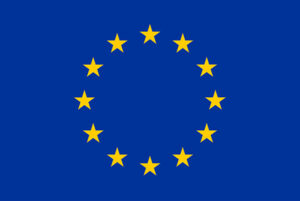Publications
All REFEREE’s publications will be available on this page once they are published. You can find below the list of existing and upcoming publications.
Background analysis and setting of the reference framework
- The state of art of the existing models and tools to support policy makers in the analysis of the real effects of the energy efficiency measures (Deliverable D2.2 )
The deliverable reviews existing models and quantitative approaches used to quantify the multiple benefits of energy efficiency, to inform the development of our own modelling tools and approaches.
The deliverable reports the results from the surveys and interviews to selected focus groups in order to point out which non-energy benefits are that are important to consider, what policy links there are, what sectors, what policy/intervention tools are appropriate, how these link to REFEREE’s model, and how the models and interface will have to be developed to be really useful and effective.
The deliverable describes the results and information gathered from assessment of the best practices to be used to propose the REFEREE system’s design and the detailed development process.
Foreground analysis
This deliverable outlines the specific details of the models to be developed/improved, based upon a previous literature review and data scoping.
This deliverable outlines the complete methodology to be used to calculate the multiple benefits of energy efficiency, building on the previous literature review.
This deliverable includes the modelling code, programmed in Python, which i) assesses the technology diffusions and ii) calculates the multiple benefits of energy efficiency.
This deliverable analyses the results generated by the eight proposed scenario runs, to identify the major impacts in these scenarios, and the drivers of them; identify linear and non-linear responses in the full modelling framework, and; develop an understanding of the implications for integrating these technologies into the REFEREE decision tool.
This deliverable includes the modelling code, programmed in Python, which i) assesses the technology diffusions and ii) calculates the multiple benefits of energy efficiency.
Simplified tool
The deliverable presents an offline version for experienced users (not requiring a user-interface) developed in MS XLS enhanced with Visual Basic, linked
to E3ME Lite.
The deliverable presents an online REFEREE system designed as a user-friendly interface requiring no particular modelling expertise, but policy-expertise in the field of energy and socio-economic and environmental impact assessment.
The deliverable report on the documentation of the REFEREE system according to standard software protocols to facilitate its future update. as well as an online user-guide and tutorial with a number of samples based on case studies.
- REFEREE Maintenance protocol (D4.4)
The deliverable describes a maintenance protocol assessing human and financial resources needed to keep the system up and running.
Policy tools testing and user engagement
The report presents the process of the REFEREE Policy Advisory Group, the content of the discussions, how PAG members’ inputs were taken into account in the project and provides an assessment of such policy consultation processes with recommendations for future applications.
- (Upcoming) Report on pilot use-cases and need assessment for implementing the REFEREE policy-support system and tools (D5.2)
The report will wrap the results from testing the tools in different policy scenarios, derived from the users’ daily practices and needs. Need assessment for implementing the REFEREE policy-support system and tools, including giving recommendations for improvements and feedback from the testing will be also considered.
- (Upcoming) Guidebook with best practices of integrated approaches towards energy- and non-energy impacts (D5.3)
Based on the testing of the REFREE policy-support system and tools, the results from the pilot use-cases and the policy recommendations developed during the project, best practices of energy interventions and integrated approaches for maximizing energy and non-energy benefits will be identified and outlined in the guidebook. The latter will also include hands-on assistance and practical recommendations on how these best-practices examples and approaches could be replicated, including outlining key steps in the process.
Raising awareness of energy efficiency co-benefits and of the tool
The plan presents the communication and dissemination activities planned and already achieved within the project, including the creation of the project’s visual identity, social media channels and website. It also reports about the first steps in mapping existing initiatives and stakeholders.
The deliverable is a visual representation of key information about energy efficiency in the EU and concrete examples of multiple benefits, e.g. energy costs, health, employment. The final version of the infographics is available in several languages (see website section “Multiple benefits of energy efficiency”) and was used for online communication purposes, with a specific attention to its diffusion through social media.
This policy paper thus highlights the importance of a better integration of multiple benefits into the general energy efficiency policy approach. It presents
Referee as one of the possible solutions and provides some general policy recommendations.
- (Upcoming) Final report on dissemination activities (Deliverable D6.4)
This report will provide an overview of the communication and advocacy activities led as part of the REFEREE project. It will include an assessment of the different dissemination tools and improvement avenues.
The information on this website reflects only the authors’ view. The Agency is not responsible for any information it contains.
The website www.refereetool.eu is managed by the Jacques Delors Institute and is subject to the terms of use (available here) and privacy policy (available here) of the Jacques Delors Institute’s website.

This project has received funding from the European Union’s Horizon 2020 research and innovation programme under grant agreement No 101000136.
Website made by ETIC INSA Technologies

